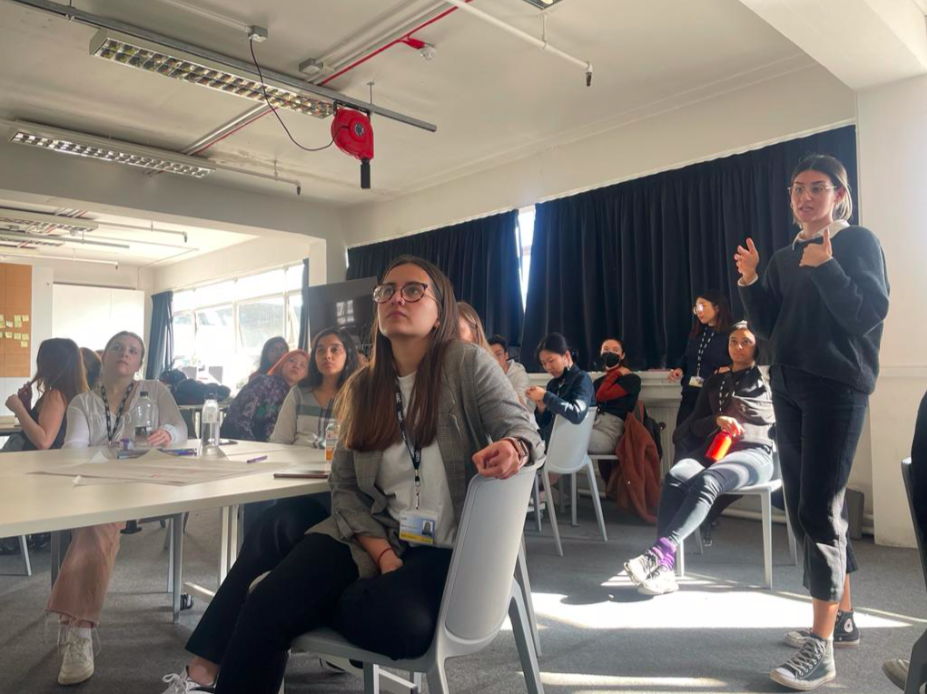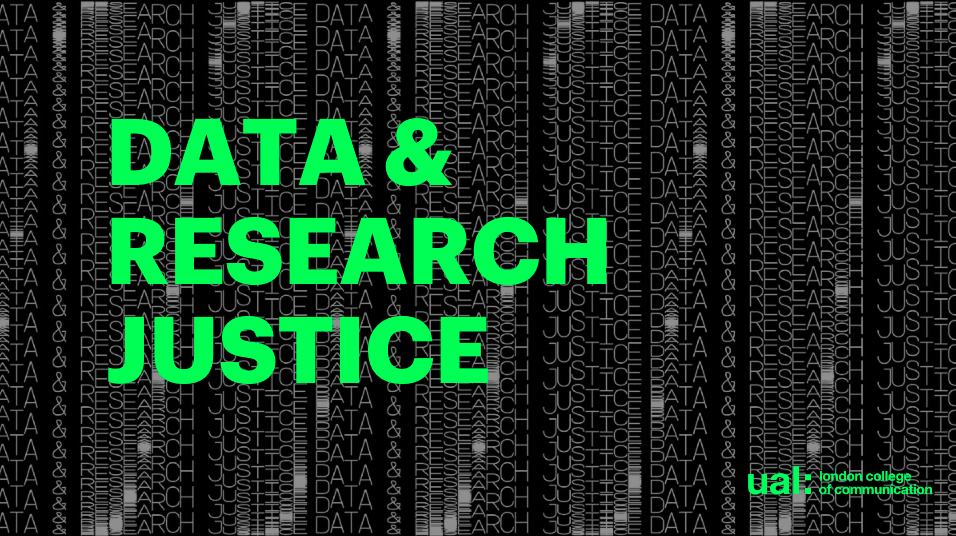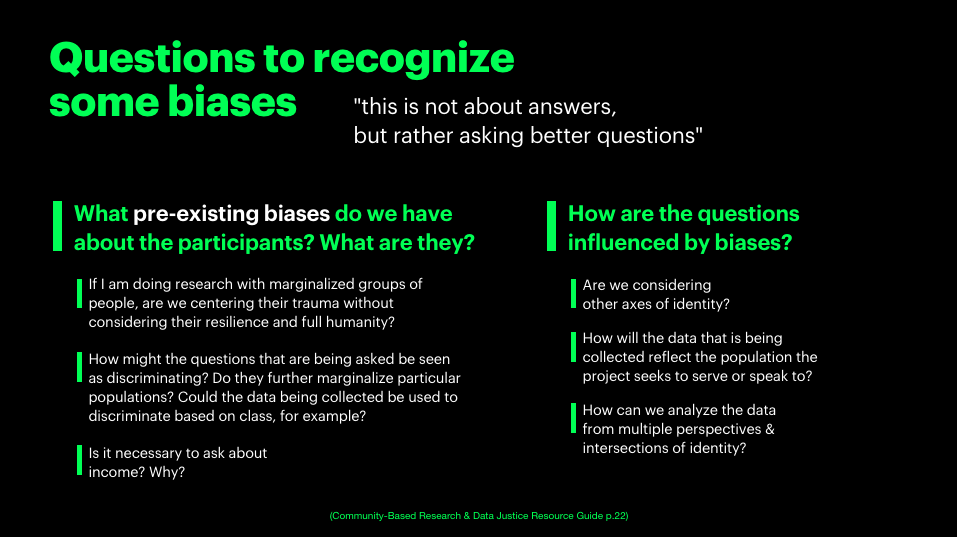>> Data Biases in Research Workshops
click here for a plain text file of this page →
Special Guest Lecturer at the London College of Communication in MA Design for Social Innovation and Sustainable Futures Course

about the workshops
Data is everywhere and affects us all - even a conversation with a community member is a way of collecting data. What kind of questions are you asking? What happens with their answers? What are the power dynamics of the conversation? Whom is this project for? Who is this project by? In this workshop, ideas about power, bias, and extractive research methods were discussed and challenged. Different kinds of biases were recognized through various examples and group discussions. Furthermore ways to work with these biases while considering our own power as researchers was explained with community based research as a focus.

